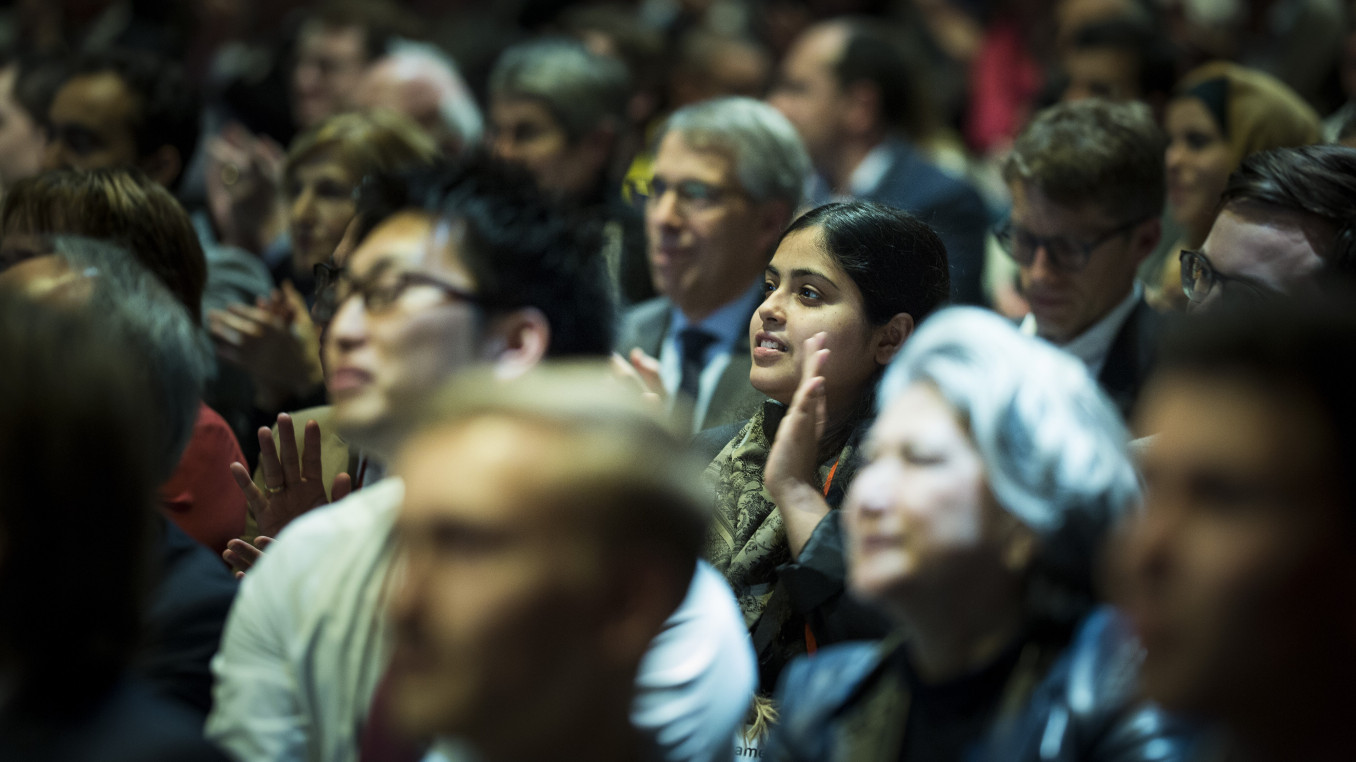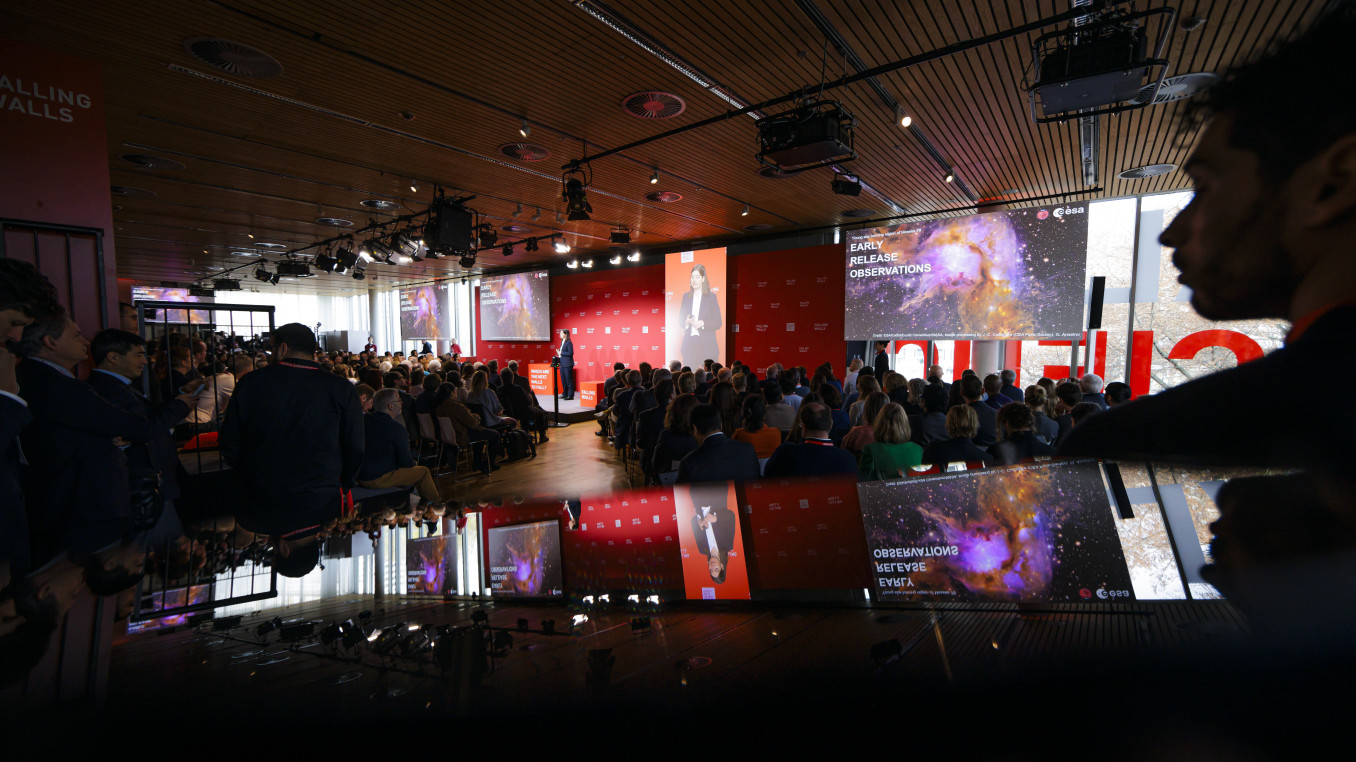Nathan Congdon's Vision-Driven Development Research Transforming Lives Globally
Breaking the Wall of Vision-Driven Developement
Winner Interview 2024: Social Sciences and Humanities
Nathan Congdon's research, through the ENGINE initiative, leverages vision care to drive educational, economic, and safety improvements in developing countries. By conducting groundbreaking trials like CLEVER in India, which explores vision care's potential to prevent dementia, and STABLE in Vietnam, which assesses the impact of glasses on motorcycle safety, Congdon's work is setting new precedents. His projects also address online banking accessibility for the elderly in Bangladesh and enhance school performance in Zimbabwe and Sierra Leone. Collaborating with policymakers, Congdon's evidence-based approach aims to integrate low-cost vision care into global development strategies, significantly advancing the Sustainable Development Goals.
Which wall does your research or project break?
Our team’s high-quality trials in underserved rural China, India and elsewhere have been the first to show that low-cost vision care improves children's learning and enhances adult workplace productivity. This evidence has led to increased government and industry investment in vision care in low-resource settings, breaking down the walls of access to quality education and productive work. Through ENGINE (Eyecare Nurtures Good-health, Innovation, driviNg-safety and Education), our team of 29 organisations, including universities, NGOs, patient groups and government ministries, are delivering three randomised trials designed to leverage eyecare and further break down walls to safer roads, healthy aging and financial inclusion through online banking. CLEVER in India is the first-ever study to assess whether low-cost vision care can prevent dementia, treatment for which currently consumes some 1% of India’s GDP. A strong connection between vision loss and decline in cognition has been observed for decades, but only a randomized trial like CLEVER can provide the cause-and-effect evidence needed to unlock this novel, inexpensive mental health tool for an aging world. STABLE in Vietnam is testing whether glasses can improve motorcycle safety among young drivers in a country with one of the world’s highest rates of both myopia and motorcycle mortality. It is the first-ever such study in any lower-middle income country, and a successful result will validate vision care as a low-cost solution to reducing traffic death, the leading cause of mortality globally between ages 5 and 29. In Bangladesh, all social safety net payments to the elderly are now made online, a safe and convenient option, but one which excludes some ¾ of recipients who cannot see a smartphone in order to use it. Our THRIFT trial seeks to improve access to online banking with glasses, providing elders with a low-cost path not only to financial inclusion, but to a myriad other benefits of access to the internet. ENGINE is designed and executed in collaboration with key policy makers, such as the Vietnamese Ministry of Transport and the Bangladesh Department of Social Services, with the explicit aim of using high-quality trial evidence to guide governments towards low-cost investments in vision care which can accelerate progress towards the Sustainable Development Goals and permanently improve the lives of both young and old in some of the world’s poorest areas.
What are the three main goals of your research or project?
CLEVER: The goal is to prove that low-cost near and distance glasses, provided to Indian rural dwellers aged 60+, can significantly decrease the pace of cognitive decline over three years. A successful trial will dovetail with India's current policy of fighting dementia with low-cost preventive strategies, and will unlock a powerful new tool to maintain mental clarity as a vital ingredient of healthy aging for some of India's poorest elders. CLEVER will provide a novel and affordable weapon for governments in LMICS to break down the wall to vigorous and socially-connected mental health through clear vision.
STABLE: The goal is to prove that a simple pair of distance glasses can help myopic young motorcycle drivers, the group at greatest risk of crashes and resulting morbidity and death, to drive more safely. The young are a crucial resource for countries like Vietnam, representing an investment in education and hope. But the leading killer among children and young people, in Vietnam as well as globally, is traffic crashes. In collaboration with the Vietnamese Ministry of Transport (MOT), a successful trial result in STABLE will lead to tighter enforcement of Vietnam’s existing traffic laws, which currently permit life-long motorcycle licensure on the basis of a doctor’s letter, without any actual vision exam being necessary. Our team is already testing novel models to deliver free or low-cost vision care through MOT testing centers at the time of a failed eye exam. This will help to break down the wall of access to safe roads for all users in Vietnam and elsewhere, saving countless lives.
THRIFT: The goal is to show that a free pair of reading glasses and brief training in the use of a smartphone can deliver mobile banking as an entry point to financial inclusion for the millions of elders dependent on their Old Age Allowance and Widows Allowance payments in Bangladesh. Our work with local partners B-Kash and the Department of Social Service has shown that over 70% of recipients struggle to access online banking solely because of readily-corrected vision problems. The World Bank has shown tremendous interest in Bangladesh’s model of online banking for the elderly, as a means to enhance convenience and safety of transactions. A successful trial in THRIFT will break down the wall to financial inclusion for elders in Bangladesh and elsewhere, as vision care is widely incorporated into national mobile banking programs for the elderly.
What advice would you give to young scientists or students interested in pursuing a career in research, or to your younger self starting in science?
A major goal of ENGINE is capacity-building, through training of young researchers and clinicians in our collaborating countries. This is co-delivered by ENGINE lead partners Queen's University Belfast and LV Prasad in India, and also includes the formation of an Injury Research Training Center in Ho Chi Minh City, Vietnam, and management training for two dozen of our team leaders in the countries where we work. Thus, advice to young scientists is very much on our minds. A few things we tell all of our students:
All of us are each other’s teachers as well as each other’s students. Students should seek the chance to teach, just as teacher’s should be looking for opportunities at all times to learn from their students.
Research is not an end in and of itself. It is a tool designed to remedy deficiencies and short-comings in society. Tools only function when they are as well-made as they can be, but the design and implementation of the best-quality tools cannot distract us from the use of those tools for their intended purpose: to inform policy-makers, industry, patient-representative groups, and others who wield the power to change society, how best to do it.
Solving complicated problems involves bringing together groups of experts in areas such as vision care, traffic safety, mental health, statistics, education and mobile banking who may never have communicated before. For this process to work, there must be mutual respect and an understanding that the real experts are always those living and working in the lower-middle income countries where our projects exist. There must also be the ability to communicate enthusiasm and excitement for the work that we do together, and to listen carefully to each other.
Trials such as those in ENGINE are hard to do. If they weren’t hard, they would already have been done. We should expect challenges and times of uncertainty and doubt. It is worth remembering what the surgeons say about success in appendectomies: if every belly you open up really does have appendicitis, then you are missing some cases. If every one of our trials succeeds, then we aren’t doing hard enough research, the research that can really create change.
What inspired you to be in the profession you are today?
Inequity angers me, and eye care seems to me the most efficient tool to redress it. I'm also deeply moved by the beauty of vision.
What impact does your research or project have on society?
ENGINE and all our related work creates evidence. That evidence is a tool for very specific and powerful change across the life course.
What is one surprising fact about your research or project that people might not know?
Our team accepts the obligation to fail occasionally, which is inherent in the need to take on the hardest and most impactful questions. Only failure from a lack of imagination, an open mind, or unwillingness to work hard is unacceptable.
What’s the most exciting moment you've experienced over the course of your research or project?
From the first moment when we began the ENGINE project, right up until now, every moment has been an absolute thrill!
ENGINE trials: CLEVER, STABLE and THRIFT
Links to the registered protocols for the ENGINE studies:
This link is to the PROSPER tea trial, our trial which was the first to prove that vision care could improve work productivity. PROSPER found a 23% increase in tea picked with a simple pair of glasses, and created the paradigm for our work in ENGINE.
Links to recent stories in the New York Times and Guardian, as well as a video by the World Economic Forum, on the recent THRIVE trial, in which our team collaborated. THRIVE showed a 33% increase in income with delivery of glasses:
Glasses Improve Income, Not Just Eyesight
Video: In Bangladesh, providing glasses raised incomes by a third
Having the right glasses could boost earning power by a third, Bangladesh study shows


